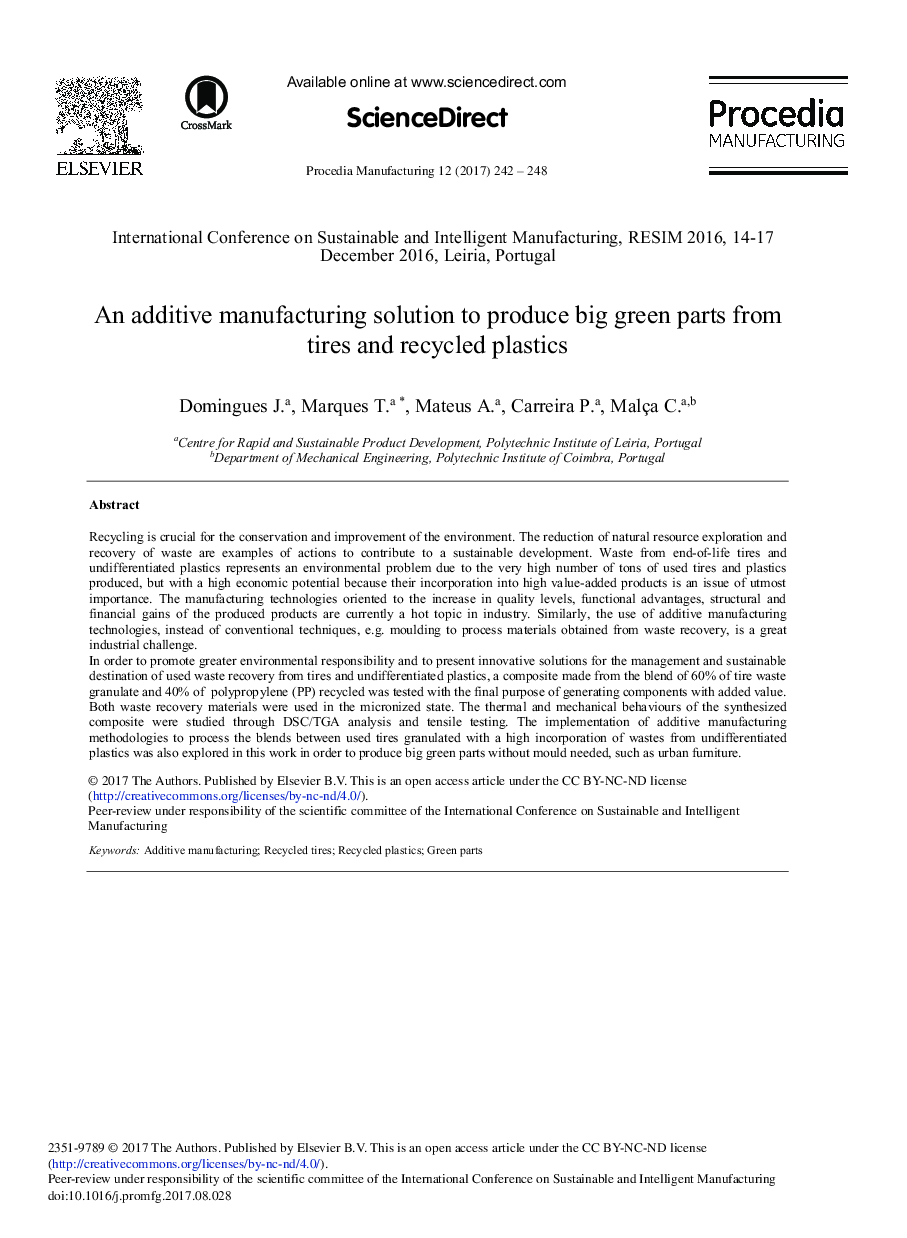| Article ID | Journal | Published Year | Pages | File Type |
|---|---|---|---|---|
| 5128631 | Procedia Manufacturing | 2017 | 7 Pages |
Recycling is crucial for the conservation and improvement of the environment. The reduction of natural resource exploration and recovery of waste are examples of actions to contribute to a sustainable development. Waste from end-of-life tires and undifferentiated plastics represents an environmental problem due to the very high number of tons of used tires and plastics produced, but with a high economic potential because their incorporation into high value-added products is an issue of utmost importance. The manufacturing technologies oriented to the increase in quality levels, functional advantages, structural and financial gains of the produced products are currently a hot topic in industry. Similarly, the use of additive manufacturing technologies, instead of conventional techniques, e.g. moulding to process materials obtained from waste recovery, is a great industrial challenge.In order to promote greater environmental responsibility and to present innovative solutions for the management and sustainable destination of used waste recovery from tires and undifferentiated plastics, a composite made from the blend of 60% of tire waste granulate and 40% of polypropylene (PP) recycled was tested with the final purpose of generating components with added value. Both waste recovery materials were used in the micronized state. The thermal and mechanical behaviours of the synthesized composite were studied through DSC/TGA analysis and tensile testing. The implementation of additive manufacturing methodologies to process the blends between used tires granulated with a high incorporation of wastes from undifferentiated plastics was also explored in this work in order to produce big green parts without mould needed, such as urban furniture.
